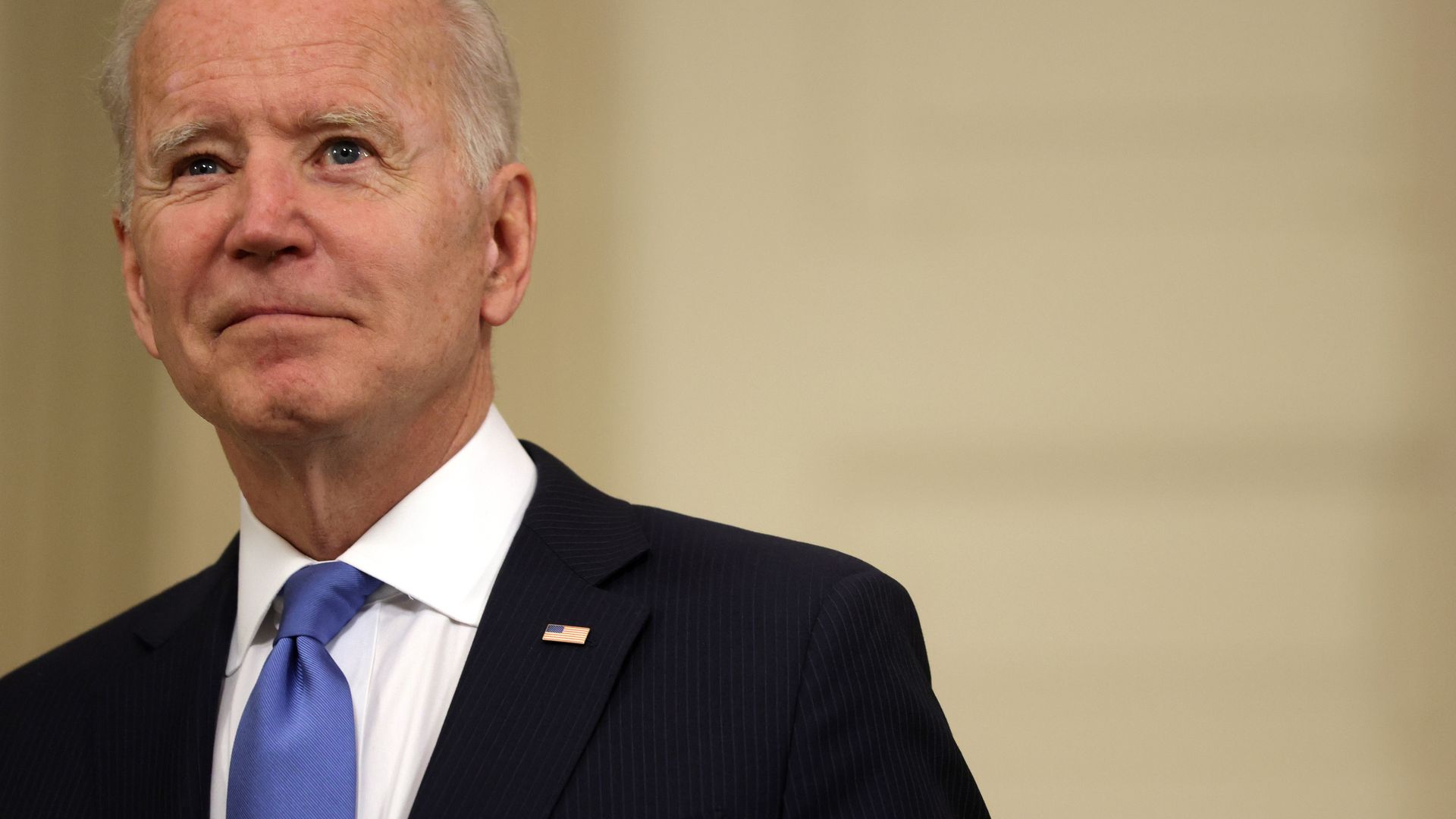Biden's plan to work with — or bail on — the GOP
Add Axios as your preferred source to
see more of our stories on Google.

President Biden, after remarks on Wednesday. Photo: Alex Wong/Getty Images
President Biden plans to test Republicans’ appetite to pay for any part of his proposed $4.1 trillion in infrastructure and social spending before deciding whether to pursue one big tax-and-spend package or two smaller ones, Axios has learned.
Driving the news: Biden is wary of boxing himself in, since it would dictate whether he seeks a bipartisan or all-Democratic approach. He told reporters on Wednesday, "I'm willing to compromise. But I'm not willing to not pay for what we're talking about. I'm not willing to deficit-spend."
- The president's proposal to raise an additional $700 billion from wealthy Americans through increased tax enforcement could be the easiest way to attract Republican support for a pared-down package, according to Democrats close to the White House.
- Biden will host his first bipartisan meeting with the "Big Four" congressional leaders next Wednesday, May 12, including House Minority Leader Kevin McCarthy (R-Calif.) and Senate Minority Leader Mitch McConnell (R-Ky.).
- He'll also meet separately with Sen. Shelley Moore Capito (R-W.Va.), who's emerged as a key negotiator for the Republicans' $568 billion counterproposal on infrastructure.
Why it matters: If Republicans agree to pay for it, Biden is more likely to settle for a smaller, bipartisan bill focused on traditional infrastructure such as roads, bridges and broadband.
- The final infrastructure bill could creep up to $1 trillion during negotiations but would be well short of the president's initial $2.3 trillion proposal. Republican support would be key, since it would need 60 votes to pass in the Senate.
- Biden would then return to Congress for the remainder of his spending proposals.
- He'd aim to pass them later in the year via budget reconciliation, a process requiring only a simple 51-vote Democratic majority for approval.
Between the lines: The one-two approach could require Biden to sacrifice many of the progressive priorities in his Build Back Better agenda.
- A second package, focused on "human infrastructure" such as paid family leave and costing in excess of $3 trillion, could collapse under the bill's overall price tag and complexity.
- Democrats expect centrists like Sens. Joe Manchin (D-W.Va.) and Kyrsten Sinema (D-Ariz.) to press for a reduction in the size and scope of the second package.
The big picture: Biden initially proposed paying for his first $2.3 trillion infrastructure package by increasing corporate taxes.
- For his second $1.8 trillion plan, he focused on personal taxes, including raising the top marginal income rate to 39.6%, treating capital gains as regular income and capturing another $700 billion in tax enforcement by investing another $80 billion in the IRS.
- Despite pairing them that way, he's open to ideas about which taxes should be applied to which spending.
Go deeper: Biden's proposed $4.1 trillion in overall spending could actually be much higher, after the Congressional Budget Office and Joint Committee on Taxation provide their official price tags.
- Biden's initial $1.8 trillion American Families plan would actually cost $700 billion more than the White House has claimed, according to a new analysis by the University of Pennsylvania Wharton Budget Model.
The bottom line: By decoupling the revenue-raisers from his spending provisions, Biden has expanded his options to pay for parts of his program.
- Yet by increasing the likelihood of supporting one smaller bill, he’s potentially jeopardizing his bigger political agenda.
